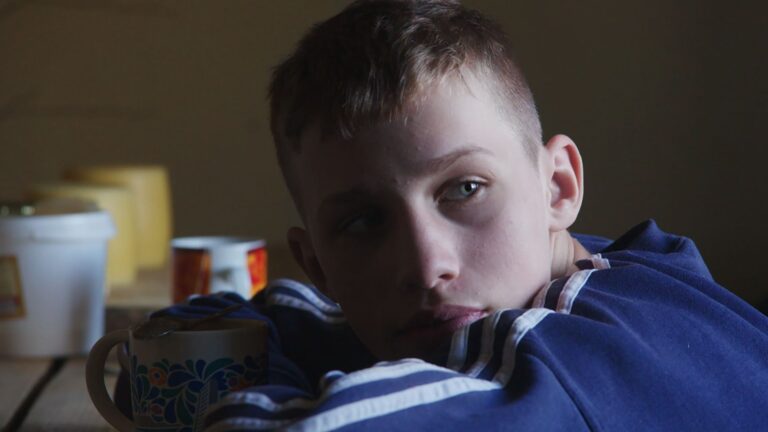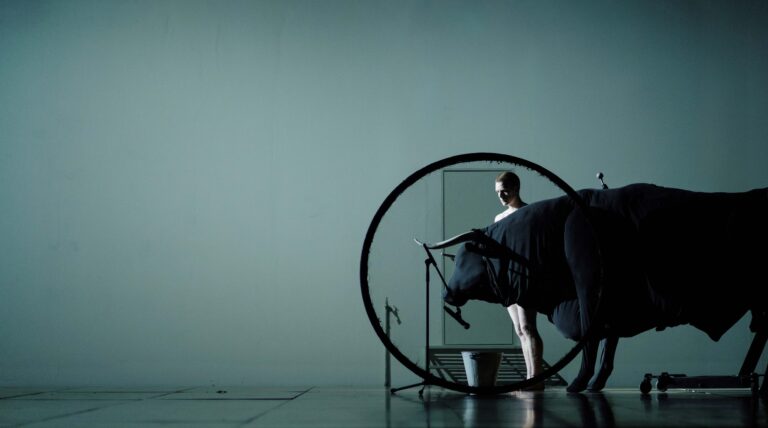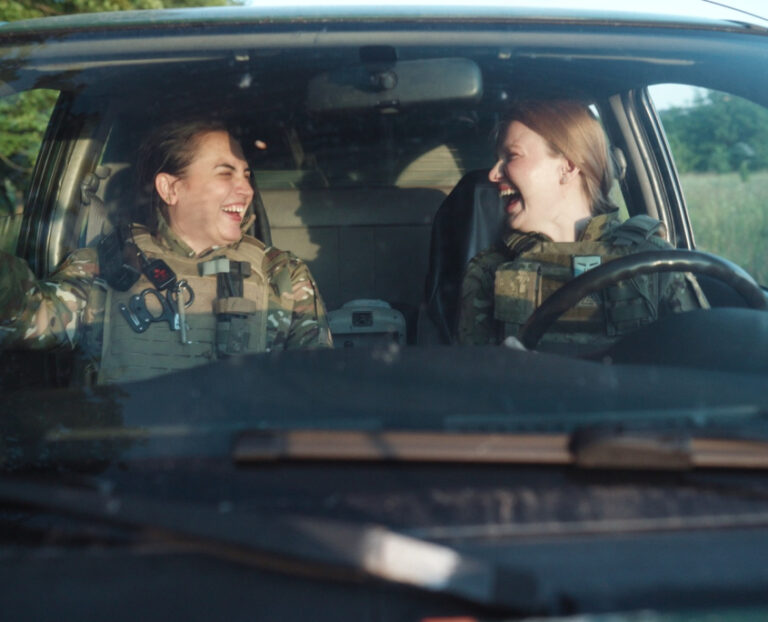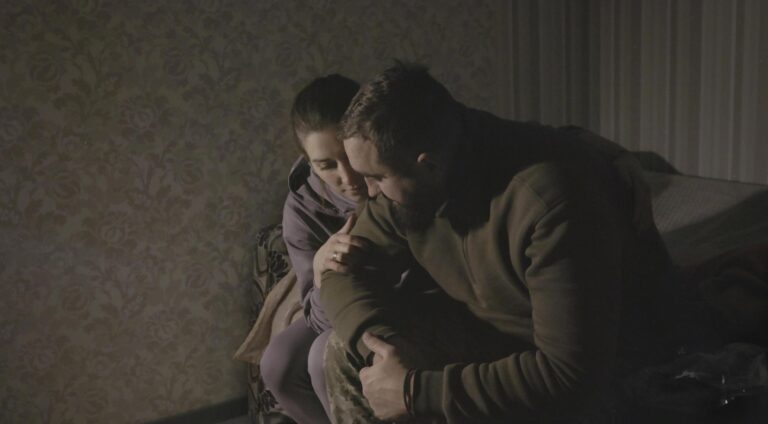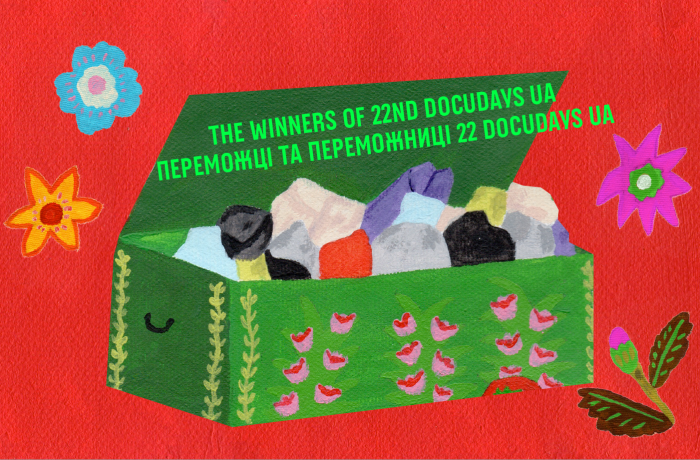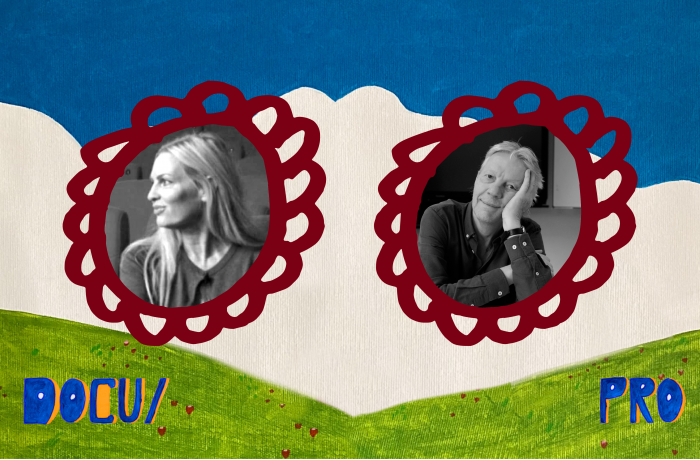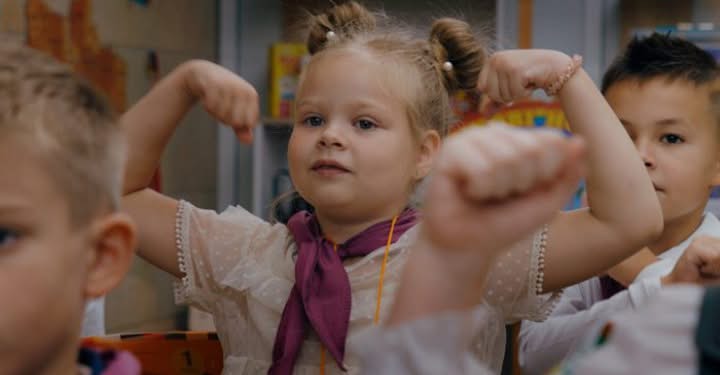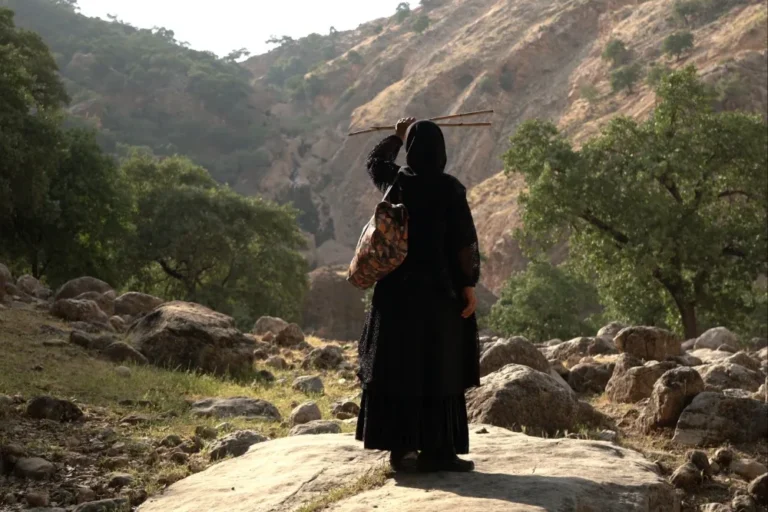The 22nd Docudays UA International Human Rights Documentary Film Festival has announced its winners. However, Docudays UA does not end there: the winning films can be watched during the screening day 13 June. Some recordings of the festival discussions will be also available on DOCUSPACE. We thank the jury for their work and congratulate the award winners!
MAIN PRIZE OF DOCU/WORLD COMPETITION 2025
2000 Meters to Andriivka, 2025, 106′
USA, Ukraine
dir. Mstyslav Chernov
Our winner is a powerful film, an extraordinary tribute to the human spirit. It offers an eye-level perspective of Ukrainian soldiers who are prepared to sacrifice their lives for their country, alongside the director and his cameraman. The film delivers a raw, almost physical experience that captures heroism, but without any romanticization, laying bare the brutal realities of war.With a simple yet highly effective narrative structure and a personal voiceover, it creates suspense rarely seen in documentary filmmaking, but it never loses its solidarity with the individual soldiers. Through intimate scenes, it portrays the young men’s motivations, fears, and dreams for the future. There was no doubt on the jury that the leading award should go to 2000 Meters to Andriivka by Mstyslav Chernov.
SPECIAL MENTION OF DOCU/WORLD COMPETITION 2025
On Sacred and Profane, 2025, 80′
Lithuania
dir. Giedrė Beinoriūtė
It is a simple yet multilayered film told in strong visual language. It explores an old ritual with care and sensitivity, revealing the essence of a small village and its people. It captures the gathering of children, youth, and elders as they gather to prepare and perform this significant event. It’s a film about cultural identity that elegantly has the Russian war as a backdrop. The film shows how collective memory can be bridged and come alive in the present. Special mention goes to On Sacred and Profane by Giedrė Beinoriūtė.
MAIN PRIZE OF DOCU/UKRAINE COMPETITION 2025
Songs of Slow Burning Earth, 2024, 95′
Ukraine, Denmark, Sweden, France
dir. Olha Zhurba
For the accurate and profound depiction of the collective experience of war and the multilayered nature of trauma, for the ability to observe without haste how the situation unfolds and for the fidelity to what is seen, the jury selected Songs of Slow Burning Earth by Olha Zhurba as the main winner of the festival in the Docu/Ukraine category.
SPECIAL MENTION OF DOCU/UKRAINE COMPETITION 2025
My Dear Théo, 2025, 98′
Poland, Ukraine, Czech Republic
dir. Alisa Kovalenko
For the outstanding individual courage, generosity in sharing intimate experience, and ability to turn the film’s characters into friends of the viewer, the jury’s special award goes to the film My Dear Théo by Alisa Kovalenko.
MAIN PRIZE OF DOCU/SHORT COMPETITION 2025
Dust is a Whale, is Sunlight, 2023, 21′
Belgium
dir. Maria Casas Castillo
For its poetic depiction of the time perspective of life on the planet, for its subtle reminder of the fragility of human existence and its embodiment of the dignity of human finitude, the jury selected the film Dust is a Whale, is Sunlight as the primary winner of the festival in the Docu/Shorts category.
SPECIAL MENTION OF DOCU/SHORT COMPETITION 2025
Mama Micra, 2024, 24′
Germany
dir. Rebecca Blöcher, сo-director Frédéric Schuld
For creating an original artistic language in telling a personal story and for the ability to accept traumatic experiences from loved ones without judgment, the jury awarded the film Mama Miсra a special mention.
MAIN PRIZE OF RIGHTS NOW! COMPETITION 2025
2000 Meters to Andriivka, 2025, 106′
USA, Ukraine
dir. Mstyslav Chernov
War is not just a crisis or a tragedy — it is a total, brutal violation of human rights, first and foremost the right to life. From up close, war is no abstraction; it is an almost unbearable, repulsive reality in which people are forced to live, to lose, and to survive. “Reality — where the pauses between explosions measure time and distance.” With no choice, no protection, on the edge. It is this terrifying closeness and human vulnerability that Mstyslav Chernov’s film 2,000 Meters to Andriivka lays bare. For its honesty, depth, and emotional power, we, as the jury, award it the main RIGHTS NOW! prize.
SPECIAL MENTION OF RIGHTS NOW! COMPETITION 2025
Writing Hawa, 2024, 84′
France
dir. Najiba Noori, Co-dir. Rasul Noori
The Special Jury Mention is awarded to Writing Hawa for its profoundly sensitive and powerful portrayal of the dignity and inner strength of an individual striving for self-realization amid global political decisions and repressive systems. With great love and respect, the film illuminates the female experience in contemporary Afghanistan — capturing not only the struggle, but also the care, the loss, and the lingering sense of incompleteness, where not all aspirations are fulfilled. Yet the journey itself — marked by resilience and agency — becomes deeply meaningful.By revealing the extraordinary character and brutal fate of its protagonist, the film reminds us that anyone around us — every individual — can become a powerful example of how to preserve dignity and humanity even under the most threatening circumstances. Considering the challenges of its creation, this film’s very existence is an act of profound dedication and courage. Its content and form together make Writing Hawa a strong and moving testament to the power of personal stories to speak to the universal values of human rights.
MAIN PRIZE OF ANDRIY MATROSOV AWARD 2025
Every year, the festival’s team rewards one film among the competition’s participants. Andriy Matrosov Award has been founded by Docudays UA organizers in the memory of Andriy Matrosov, the Festival’s producer, who died in a car accident on 16 February 2010.Where’s My Body Armor?, 2024, 17′
Ukraine
dir. Dariia Penkova
Ukraine is defending its independence at a terrible cost on many fronts of a ruthless war, both in the rear and on the front lines. Even in everyday conversations with family and friends, anxiety lingers, and the struggle and safety of loved ones remain top of mind, in thoughts and action. For the powerful portrayal — in short form — of these profound shifts that should have no place in a free and peaceful world, and in recognition of the first but confident steps in documentary filmmaking, the Docudays UA team is pleased to award the Andriy Matrosov Prize to director Dariia Penkova for the film Where is My Body Armor?
MAIN PRIZE OF STUDENTS’ JURY PRIZE 2025
Your Life Without Me, 2024, 73′
Hungary
dir. Anna Rubi
Recognized for its focus and deep sensitivity to the issues it addresses. A powerful expression of humanity, empathy, and care in portraying the struggle for one’s rights and future generations.
SPECIAL MENTION OF STUDENTS’ JURY PRIZE 2025
Limits of Europe, 2024, 98′
Czech Republic, France, Slovakia
dir. Apolena Rychlíková
Demonstrates profound professional dedication. Willingly puts their safety at risk for the greater good.
THE UNION OF THE UKRAINIAN FILM CRITICS’ JURY PRIZE 2025
Militantropos, 2025, 111′
Ukraine, Austria, France
dir. Yelizaveta Smith, Alina Gorlova, Simon Mozghovyi
For a polyphony of voices that, with elegance, style, and powerful visual metaphors, form a portrait of a people pushed out of their comfort zone — yet refusing to succumb to tragedy, and determined to reclaim what was taken from them.
AUDIENCE AWARD 2025
2000 Meters to Andriivka, 2025, 106′
USA, Ukraine
dir. Mstyslav Chernov
The 22nd Docudays UA is held with the financial support of the European Union, the Embassy of Sweden in Ukraine, International Renaissance Foundation. The opinions, conclusions, or recommendations do not necessarily reflect the views of the European Union, the governments, or organisations of these countries. Responsibility for the content of the publication lies exclusively with the authors and editors of the publication.



